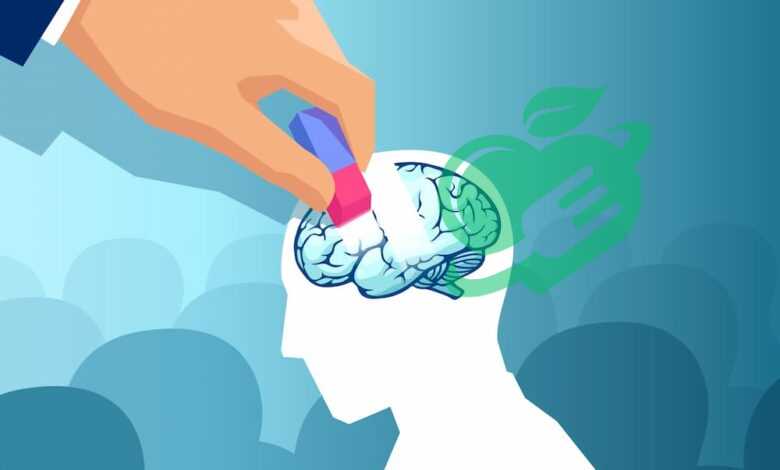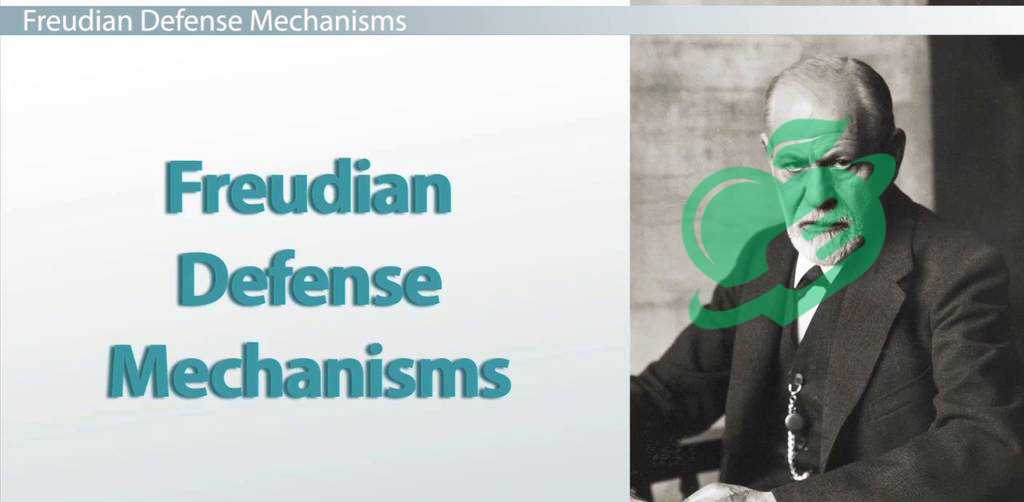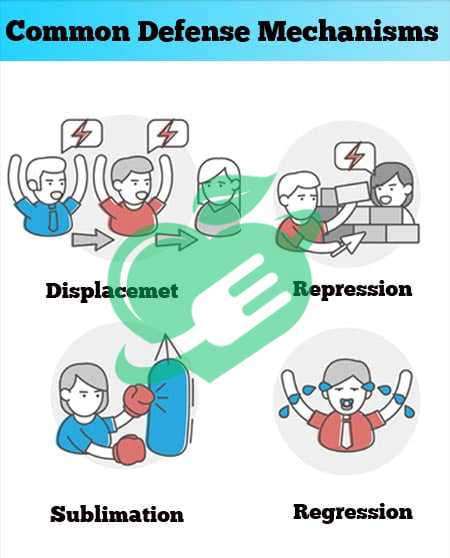How Repression Shapes Your Mind and Society

Overview of Psychological Defense Mechanisms
Psychological defense mechanisms play a crucial role in how individuals cope with anxiety, stress, and emotional conflict. Essentially, these mechanisms are unconscious strategies our minds utilize to protect us from unpleasant feelings or thoughts. They help us maintain our self-image and fend off feelings of vulnerability. For example, imagine you’re denied a promotion at work. Instead of confronting feelings of inadequacy, you might unconsciously downplay the importance of that promotion, convincing yourself that it wasn’t the right fit for you anyway. This automatic response exemplifies how defense mechanisms shield us from emotional discomfort. Understanding these mechanisms can be likened to peeking behind the curtains of our psyche. It creates an opportunity to recognize patterns in our behaviors and reactions that may otherwise go unnoticed.
Historical Overview
The study of defense mechanisms traces back to psychoanalytic theory, pioneered by Sigmund Freud and his daughter Anna Freud.
- Sigmund Freud introduced the idea that our unconscious mind harbors thoughts and feelings that can lead to anxiety.
- Anna Freud expanded upon her father’s work by categorizing various defense mechanisms, thereby laying the groundwork for contemporary psychology.
Here are a few notable historical milestones:
- Early 20th Century: Freud’s theories began to gain traction, and defense mechanisms were recognized as vital to human psychology.
- 1940s: Anna Freud published “The Ego and the Mechanisms of Defense,” providing a comprehensive analysis of different defense mechanisms.
By engaging with these historical insights, individuals can better appreciate the evolution of psychological thought and its relevance in today’s context. Understanding where these concepts originated enhances our knowledge of human behavior, and makes it easier to apply this knowledge for personal growth and healing.
Read also: 5 important foods that protect you from depression.

Freud’s Repression Theory
Repression, a key concept in Freud’s theory, serves as a primary defense mechanism for managing distressing thoughts and feelings. It’s like a mental filter that instinctively pushes unacceptable emotions and memories into the unconscious, away from our conscious awareness. Think about a time when you experienced a traumatic event, perhaps a painful breakup or the loss of a loved one. Often, the mind employs repression to help you cope with those overwhelming emotions, allowing you to function in your day-to-day life without constant emotional turmoil. However, while repression can offer temporary relief, it can lead to unresolved issues simmering beneath the surface. Over time, these repressed feelings may manifest in various ways, such as anxiety, depression, or physical symptoms.
- Key Points on Repression:
- It operates unconsciously, protecting the individual from emotional pain.
- It may lead to difficulties in relationships and self-awareness.
- Repressed memories can resurface in unexpected ways, often triggered by specific situations or emotions.
Freud’s Contribution
Sigmund Freud’s exploration of repression fundamentally changed how psychologists understand emotional distress. He viewed repression as a mechanism that could inhibit personal growth, creating a barrier to self-awareness and genuine emotional expression. Freud introduced the idea that bringing repressed memories back into consciousness through therapeutic techniques could lead to healing.
- His techniques, such as free association and dream analysis, encouraged individuals to explore their unconscious thoughts and feelings:
- Free Association: Patients share whatever comes to mind, which may reveal repressed memories.
- Dream Analysis: Interpreting dreams to uncover hidden feelings and thoughts.
Freud’s contributions laid the foundation for modern psychotherapy, emphasizing the importance of addressing repressed feelings for mental well-being. By recognizing the significance of repression, individuals can embark on a journey toward greater self-understanding and healing, ultimately transforming their lives.

Types of Defense Mechanisms
Repression vs. Denial
Delving deeper into defense mechanisms reveals a range of strategies people use to navigate emotional conflicts. Two of the most commonly discussed mechanisms are repression and denial, both of which serve to protect the individual from anxiety but operate in distinct ways.
- Repression involves the unconscious exclusion of distressing thoughts and memories from awareness, as we previously discussed. It’s like locking your feelings in a vault, preventing them from affecting your day-to-day life—at least temporarily.
- Denial, on the other hand, is a more active refusal to accept reality or facts. It’s like when someone stubbornly insists that they’re completely fine despite clear evidence to the contrary. For instance, a person dealing with a chronic illness may deny the severity of their condition, insisting they don’t need treatment.
While both serve as coping strategies, understanding the difference can empower individuals to recognize when they might be avoiding the truth.
Read also: From Panic to Recovery: Dealing with Anxiety Attack Hangover.
Sublimation and Projection
Moving along the spectrum of defense mechanisms, two others stand out: sublimation and projection. Both help individuals cope with emotions, yet they manifest in vastly different ways.
- Sublimation is a mature defense mechanism that channels unacceptable urges or impulses into socially acceptable actions. For example, someone with intense anger might take up boxing or pursue artistic endeavors as an outlet for their feelings. This way, they transform potentially destructive energy into something constructive.
- Projection, in contrast, involves attributing one’s unacceptable thoughts or feelings to someone else. Imagine being angry at a friend but accusing them of being upset with you instead. This not only allows individuals to avoid confronting their own emotions but can also create unnecessary tension in relationships.
Understanding these types of defense mechanisms can provide valuable insights into one’s behavior and relationships, paving the way for better self-awareness and healthier coping strategies. Each mechanism, whether through denial, repression, sublimation, or projection, reflects our instinct to protect ourselves from emotional pain.
Read also: Life After Open Heart Surgery: Tips for a Smooth Recovery.

Psychological Impact of Repression
Effects on Mental Health
The act of repression can have profound effects on mental health, often leading to a range of psychological issues. While it was originally intended as a protective measure, its long-term consequences can be quite detrimental. Individuals living with repressed emotions may find themselves experiencing:
- Anxiety: Without a proper outlet for feelings, anxiety often builds up, leading to constant worry and unease.
- Depression: Repressed emotions can surface as feelings of hopelessness or emptiness, affecting one’s overall mood and outlook on life.
- Physical Symptoms: Research shows that repressed feelings can manifest as physical ailments, such as headaches or gastrointestinal issues, further complicating health.
Take, for instance, someone who experienced childhood trauma but repressed the memory to cope. As an adult, this individual may find themselves struggling with trust and relationship issues, all stemming from that unresolved emotional pain. 1
Read also: Unveiling the Mysteries of Yoga: A Comprehensive Beginner’s Handbook.
Coping Mechanisms
Recognizing the psychological impact of repression opens the door for healthier coping mechanisms. It’s essential to cultivate skills that allow for the processing of emotions rather than bottling them up. Here are a few effective coping strategies:
- Journaling: Writing down experiences and feelings can provide a safe space for self-expression and the exploration of repressed emotions.
- Therapy: Engaging with a mental health professional can help individuals unpack repressed feelings and develop strategies to confront them directly.
- Mindfulness and Meditation: Practices focused on the present moment can encourage self-reflection and increase emotional awareness, allowing individuals to reconnect with their feelings.
By incorporating these coping mechanisms into daily life, individuals can transform their relationship with repression, fostering healthier emotional expression and improving overall mental well-being. Understanding the significance of addressing repressed emotions becomes a pivotal step toward personal growth and emotional resilience.
Read also: How to Manage and Reduce Relationship Anxiety.y

Coping Strategies and Treatment Repression
When dealing with repressed emotions and their effects, employing healthy coping mechanisms can be a game changer. These strategies are designed to help individuals manage their feelings without resorting to harmful behaviors. Here are some effective coping techniques to consider:
- Engaging in Physical Activity: Exercise is known for its ability to reduce stress and elevate mood. A brisk walk, a run, or a dance class can release endorphins, helping to mitigate feelings of anxiety or sadness.
- Creative Expression: Finding an outlet for feelings through art, music, or writing can be incredibly therapeutic. Creating something can provide clarity and help in processing emotions.
- Building a Support Network: Connecting with friends or family can provide emotional support. Sometimes, just talking about what you’re feeling can relieve immense pressure.
For example, a friend of mine took up painting after dealing with a challenging breakup. Initially started as a hobby, it soon became a crucial part of her healing journey; she found solace in color and brush strokes, allowing her to process her pain while creating something beautiful. 2
Read also: Elevate Your Health: The Thrilling Benefits of Rock Climbing
Therapeutic Approaches
In addition to personal coping strategies, professional therapeutic approaches can offer substantial help in addressing repressed feelings. Here are some widely-utilized methods:
- Cognitive Behavioral Therapy (CBT): This approach helps individuals recognize and change negative thought patterns that may be contributing to repression. It fosters healthier behaviors and emotional responses.
- Mindfulness-Based Therapy: Incorporating mindfulness techniques encourages individuals to stay present and acknowledge their feelings without judgment. Practicing mindfulness allows for greater emotional acceptance and awareness.
- Psychodynamic Therapy: This method aims to uncover repressed emotions by exploring past experiences and the impact they have on current behavior.
By weaving together healthy coping mechanisms and therapeutic approaches, individuals can better navigate their emotional landscape. Connecting with both personal strategies and professional support paves the way toward deeper self-discovery and significant emotional healing, ultimately leading to a more fulfilling life.
Read also: Unlock the Power of the CBT Triangle in Your Life.

The Role of Repression in Daily Life
Repression doesn’t just linger in the background; it often seeps into various aspects of daily life, particularly in work and relationships. In a professional environment, for example, individuals may repress feelings of inadequacy or fear of failure, opting instead to wear a mask of confidence. This may help them function day-to-day, but it can lead to undue stress and burnout over time. Consider a colleague who excels in their job yet feels constant pressure to overperform. They might downplay any feelings of self-doubt, believing that admitting these emotions would compromise their image. However, this repression can result in anxiety, ultimately affecting both their job performance and relationships with team members. In interpersonal relationships, repressed feelings can create barriers between partners or friends. A person might bury resentment or disappointment instead of discussing them candidly, leading to feelings of isolation or distrust. Open communication becomes essential in addressing these issues. 3.
Dealing with Repressed Feelings
Navigating life’s challenges while dealing with repressed feelings requires intentionality and self-awareness. Here are some strategies to help manage and process these emotions:
- Self-Reflection: Set aside time each day for introspection. Asking oneself questions about feelings can help uncover repressed emotions that need addressing.
- Open Conversations: Foster a safe environment with loved ones. Expressing thoughts and feelings can clarify misunderstandings and strengthen relationships.
- Professional Guidance: Engaging with a therapist can provide valuable insights into addressing repression and developing healthier emotional responses.
Because your health is the most valuable thing you have and the most precious thing we care about, we always recommend that you consult your specialist doctor in everything related to your health and daily life. Everything we provide here is for awareness purposes only and does not replace consulting a doctor. Every person has a unique condition that deserves special care, and we are here by your side, working passionately to provide the information you need. Always follow us, because we write for you with love and sincerity to remain a source that inspires you with hope and supports you on your journey towards a better life.
- PMC ((↩))
- agentsofchangeprep ((↩))
- charliehealth ((↩))




One Comment